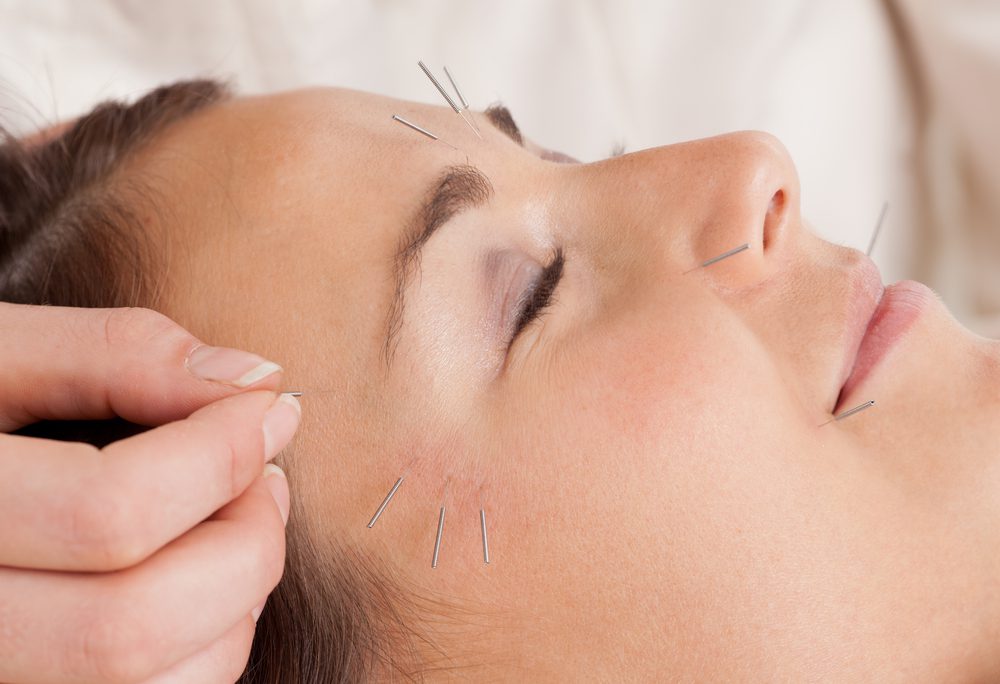Sinusitis is a condition that occurs when the tissue lining of the sinuses becomes inflamed and swollen. A variety of factors can cause this, including:
The medicines used for treating sinusitis vary depending on the severity of the condition and underlying cause. Here are some common medications your Doctor may prescribe.
Antibiotics: If a bacterial infection causes sinusitis. These medications target the bacteria and help clear up the infection.
Decongestants: These medications reduce congestion by narrowing the blood vessels in the nasal passages.
Nasal corticosteroids: These medications reduce inflammation in the nasal passages, which can help relieve swollen sinuses and improve breathing.
Antihistamines: If allergies cause sinusitis, Antihistamines may help reduce allergy symptoms like sneezing, runny nose, and itching.
Acupuncture is an ancient Chinese medicine technique that involves inserting thin needles into specific points on the body to rebalance energy flow and improve overall health. It has been used for centuries to treat various conditions, including sinusitis. Here’s how acupuncture may help treat sinusitis.
Relieves sinus pressure and pain: Acupuncture can help relieve the pain and pressure associated with sinusitis by stimulating the release of endorphins, which are the body’s natural painkillers.
Reduces inflammation: Acupuncture can help reduce inflammation in the nasal passages and sinuses by increasing blood flow and promoting the body’s natural healing response.
Boosts the immune system: Acupuncture can help boost the immune system, which can reduce the frequency and severity of sinus infections.
Promotes healthy nasal function: Acupuncture can help promote healthy nasal function by clearing nasal congestion, removing excess mucus, and reducing the likelihood of further infections.
Key Acupuncture points for sinusitis: Extra Point – Bitong, Extra Point – Yintang, Lung 7 – Lieque, DU 20 – BaiHui, DU 23 – Shangxing, LI. 19 – Kouheliao, LI. 20 – Yingxiang and St. 36 – ZuSanLi. Various points are used depending on each patient’s condition.
Acupuncture treatment combined with traditional Chinese herbal medicines for sinusitis can effectively treat this condition.
The number of treatments required can vary depending on the individual’s condition and symptoms.
Saline nasal irrigation: Rinsing your nasal passages with a saltwater solution to clear out mucus and other irritants. You can use a neti pot or a saline spray to do this.
Steam inhalation: Inhaling steam can help reduce congestion and ease sinus pressure. You can do this by taking a hot shower or bath or using a humidifier or vaporizer.
Ginger tea: Ginger has natural anti-inflammatory properties that can help relieve sinus pressure. You can make ginger tea by steeping fresh ginger in hot water for 5-10 minutes, then adding honey and lemon to taste.
Spicy foods: Eating spicy foods, such as hot peppers or horseradish, can help alleviate sinus congestion by opening up your nasal passages.
Apple cider vinegar: Apple cider vinegar has natural antibacterial and antifungal properties that can help fight sinus infections. Mix 1-2 tablespoons of apple cider vinegar with water or juice and drink it a few times daily.
Please note that while natural remedies can effectively ease sinus infection symptoms, they are not a substitute for medical treatment. If your symptoms persist or worsen, seeing a medical doctor is important.

Viral infections: The common cold and other viral infections can cause inflammation in the sinuses, leading to sinusitis.
Allergies: Allergic reactions to pollen, dust, animal dander, or certain foods may cause the lining of the sinuses to swell, resulting in sinusitis. Bacterial infections: Sinusitis can be caused by a bacterial infection when bacteria enter and grow in the sinuses, causing inflammation.
Environmental factors: Exposure to pollutants, smoke, and other irritants can result in sinusitis.
Structural abnormalities: Structural abnormalities in the nasal cavity, such as a deviated septum, nasal polyps, or cysts, can make it difficult for mucus to drain properly, thus increasing the risk of developing sinusitis.
Tooth infections: Infections in your teeth and gums can spread to the sinuses, causing inflammation.
Immune system disorders: Certain immune system disorders, such as cystic fibrosis, HIV/AIDS, and other conditions, can increase the risk of developing sinusitis.